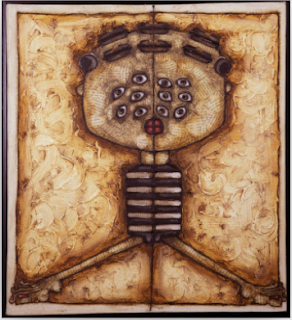Pro-Reproductive Rights Movement in The Dominican Republic
Today I listened to an audio story on Latino USA called "The Fight for Abortion Rights in The Dominican Republic" which aired on June 29th, 2021. The host of the show is Maria Hinojosa and the guest speaker is journalist Amanda Alcántara. I learned that anti-abortion laws in The Dominican Republic are very strict. I learned that civil rights for women in regards to pro-reproductive rights is minimal to none. Hinojosa mentions, "The Dominican Republic has one of the harshest anti-abortion laws in the Americas. Abortion isn't allowed under any circumstances. Only 5 other countries in the continent have such harsh restrictions on ending a pregnancy legally. That's Haiti, Honduras, Nicaragua, Jamaica, and El Salvador" (Latino 1:20 - 1:42). I liked that the guest speaker, Amanda Alcántara, gave the audience some background information. Alcántara sheds light on the consequences of having an abortion in The Dominican Republic. The fight for "tres causales," which means "three circumstances" calls for abortion rights reform that permits abortions when 1) the fetus is non-viable, 2) the woman's life is at risk, or 3) when the pregnancy is the result of rape or incest. I can't say that I disliked anything about this segment.
 |
The article that I found on JSTOR which relates to this topic is called "ON THE MORAL AND LEGAL STATUS OF ABORTION" by Mary Anne Warren. She discusses her criteria for defining "personhood" and asserts that a fetus is not a person, thus making abortions morally permissible. A fetus' potential right to life does not justify the disenfranchisement of women. I chose this article in relation to the Latino USA segment because it talks about the same topic of abortion. Although it doesn't specifically discuss the same exact problem as the Latino USA segment which is the fight for abortion rights, the article still analyzes the morality of abortion. Warren's concluding paragraph states, "Thus, neither a fetus's resemblance to a person, nor its potential for becoming a person provides any basis whatever for the claim that it has any significant right to life. Consequently, a woman's right to protect her health, happiness, freedom, and even her life, by terminating an unwanted pregnancy, will always override whatever right to life it may be appropriate to ascribe to a fetus, even a fully developed one" (Warren 61).
Women in Chile demonstrate in Santiago in favor of reproductive rights on International Safe Abortion Day in Latin America Pablo VERA AFP
The fight for abortion rights has been an ongoing problem that seems to have no solution anytime soon. Alcántara states, "Women who live in poverty, women who are marginalized, women who are disenfranchised do not have access to an abortion, and this creates a system of inequality" (Latino 09:44 - 09:57). The two opposing sides of pro-choice and pro-life have people pitted against each other. In light of recent events in the US, specifically in Texas, where a law was recently passed which prohibits abortion upon detection of fetal heart activity regardless of rape or incest, usually at 6 weeks, it's not difficult to feel anger at the potential overturning of Roe v. Wade, a court case in which the Supreme Court protects a woman's right to an abortion. The government's restrictions on women's civil rights and what she can do with her body are just downright unconstitutional. This issue connects with my theme for the course which is the relationship between authority and the people. Authorities are governing a woman's basic human right, and that's unacceptable. Women should have the liberty to do what they can with their own bodies. Warren mentions, "And thus, in the absence of any overwhelming social need for every possible child, the laws which restrict the right to obtain an abortion, or limit the period of pregnancy during which an abortion may be performed, are a wholly unjustified violation of a woman's most basic moral and constitutional rights" (Warren 61).
Sources
"The Fight for Abortion Rights in The Dominican Republic." Latino USA, 29 Jun. 2021, PRX, https://beta.prx.org/stories/347343. Accessed 25 Oct. 2021.



Comments
Post a Comment